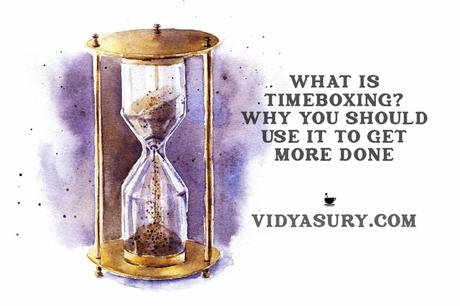
Timeboxing is a fantastic time management tool that can be used by just about anyone. Whether you work from home, are a student, or a corporate executive, or a homemaker-timeboxing can work for you. Simply said, time boxing can improve your life.
But what is timeboxing?
You assign a fixed period of time to a task. Then you schedule it and implement it. That's all! Why does it work? It makes you focus, feel less stressed and accomplish more. It makes you prioritize work, stick to deadlines. You experience a feeling of accomplishment frequently and if you are part of a team, there is a sense of transparency where people know what you are doing.
Of course, the tricky part is to group tasks and guesstimate how long they will take to do, but as you practice you will get better as you learn all the things you must take into account to use timeboxing successfully.
Timeboxing is a great way to stay organized and increase productivity, as you can obviously see.
People usually tend to approach their work one task at a time and stick with it until it is finished no matter how long it takes. With timeboxing, the focus is on time, not the task itself.
How time boxing works
As a powerful time-management tool, you assign a fixed amount to time called a timebox to an activity. Then, you use only this time to finish the task. It is a great way to manage your workload as it ensures you don't spend too long on something that is not worth the effort. For those involved in project management, timeboxing can also help stay within budget.
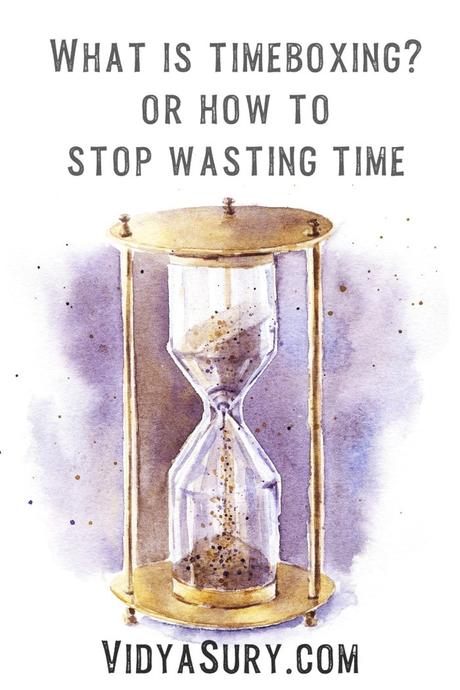
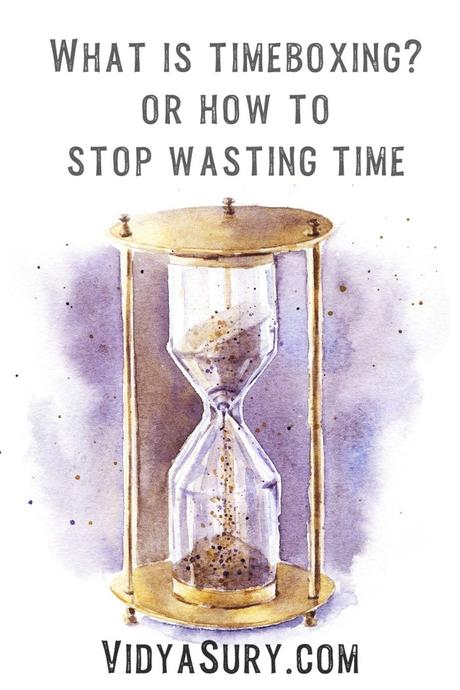
How to use timeboxing to schedule your day
- From your to-do list, estimate how much time each task is likely to take.
- Allocate each task a fixed timeframe.
- Include breaks where necessary and also add in contingency time for unexpected interruptions.
- Set a timer to let you know when you should stop working on a certain task and move on to the next timebox.
What if you didn't finish your task within the time you allocated?
Yes, I get that. There is a chance you might want to continue until you finish the task. But analyze what you've completed so far. Review your progress when you reach the end of the timebox. Ask yourself:
- Did you finish your work?
- Was your time allocation accurate?
- If not, why not?
- How will you do it differently next time?
Benefits of timeboxing
On his blog on the importance of planning every minute of your work day, Cal Newport, author of Deep Work, talks about time blocking aka timeboxing:
I call this planning method time blocking. I take time blocking seriously, dedicating ten to twenty minutes every evening to building my schedule for the next day. During this planning process I consult my task lists and calendars, as well as my weekly and quarterly planning notes. My goal is to make sure progress is being made on the right things at the right pace for the relevant deadlines.This type of planning, to me, is like a chess game, with blocks of work getting spread and sorted in such a way that projects big and small all seem to click into completion with (just enough) time to spare.
Okay - so time blocking is different from timeboxing: while both assign a fixed time period to a task, time blocking reserves time for an activity, while timeboxing limits the time you spend on it.
Let's face it - deadlines motivate us to focus and help us be more creative, especially if we tend to procrastinate. If we want to accomplish everything on our to-do list, we have to plan every minute of our day. The time limit imposed by timeboxing force us to avoid distractions and prioritize the task at hand.
But here's something to remember. Timeboxing works only if you set appropriate lengths of time for the timeboxes. Too short-not much is accomplished. Too long-you risk losing focus or dilly-dally around. So analyze your progress. Also, some are tasks that might be high priority and must be finished off, no matter how long they take. Timeboxing might make you rush and that defeats the objective. So-planning properly is key.
That said, timeboxing is a powerful approach whose purpose is to ensure that you use your time productively. It complements your to-do list perfectly. And oh, it is good to have a timer. You already have one on your laptop - just look under alarms and clocks in the settings.
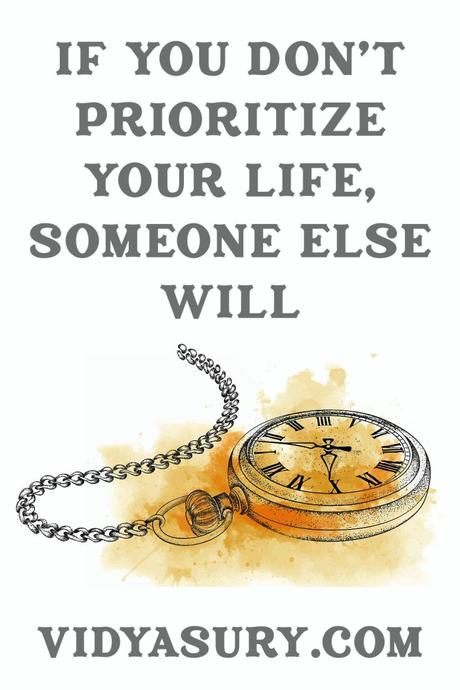
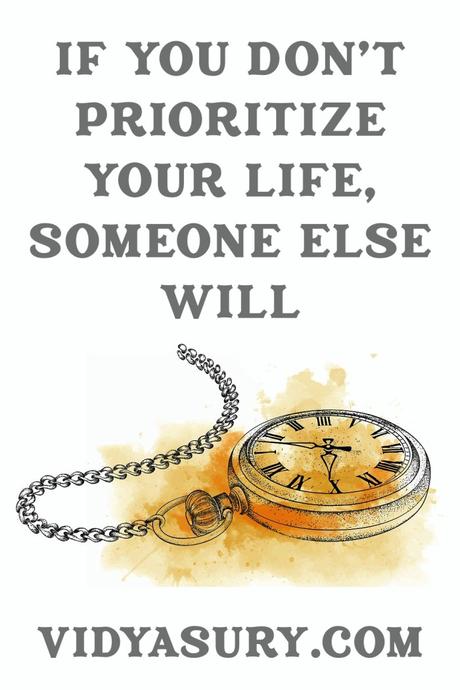
Here are 15 ways you can use timeboxing to get things done.
1. See definite progress, especially with huge tasks
Some big tasks can be so intimidating that even though you spend a lot of time on them, you don't seem to make any headway. By using timeboxing, you will find that you make progress on these tasks, while ensuring that you don't spend all your time on them. How? Slice it down. Break it into chunks. Then tackle each chunk by timeboxing it.
2. Finish what you keep putting off
Pick up your to-do list. Do you see some tasks you always postpone? Maybe not really important right now, but they'll pile up to such an extent that they stress you out. Make time boxes for them and get rid of them quickly. Feel the joy.
3. Conquer procrastination
Keep procrastinating on a particular task that needs to be done? Just give it a time box. And when you start working on it, you'll be motivated to continue until it is done. I find this works for me. There are some things I just sit on and re-prioritizing them with time boxes gets them done.
4. Stop being a perfectionist
Just the opposite of #3. It is also called analysis paralysis. Stuck for so long in think mode that nothing gets done and time is gone. There are some things that send me into this mode. Cleaning out my pantry, for instance. So, I create time boxes for these tasks to get myself in action mode. It also prevents me from spending more time than is necessary on the task.
5. Be more focused
A time box keeps you focused on the task at hand. It keeps away distractions. It gives you structure to get in the flow of doing things. And creating the time box helps you ensure that you are prepared for the task.


6. Be more efficient
Deadlines are beautiful because as they draw closer, they make us accomplish far more in that short span of time than we would during an entire day! The time pressure keeps us moving and focused. It is the same with time boxes as they come with the time pressure. With the timer in sight, you make sure you work on your task. Also, when you know there's a specific time frame, you tend to make sure you only take on what you can complete.
7. Be more motivated
Some important tasks, especially those big ones, can be tiring. It can be a while before you see the intended outcome. As a result, the tendency is to put things off and focus on the easier tasks simply because we need that victory. Time box these big tasks to motivate you. When you complete one box, it is a sign of progress.
I use the time box method with music to motivate me to complete certain boring tasks. Doing the dishes? I try to finish that using a particular playlist of songs. I use instrumental music to finish creating outlines of blog posts within a certain time frame.
8. Enjoy creative projects more
Not everything can be timeboxed, especially creative projects. You can't finish them in one sitting. An example is making the content calendar for my blogs. There is a series of things I need to do, such as mark days of posting on the calendar, decide on topics, outline the topics, write them, create the graphics, and so on. This means, I need a time box to carry out just one of these things at a time. Then I let it simmer. I mull over it and then come back to it for the next phase. I find that several time boxes are perfect for creative projects.
10. Be more conscious about time
"Where did my day go?" Yup. Standard question when you have a busy day. Timeboxing makes you conscious about how you spend your time. And when you use time boxes, it is easier to audit your time and figure out how much you should really take on and what things to say "no" to.


11. Better use of your energy
To be efficient, you need to make sure you get enough breaks when you work. Time boxes enable you to do this so you can keep up a good work rhythm. When you are well-rested, you have the energy to accomplish more.
12. Better prioritization
All the experts tell you to tackle the most difficult or the most important task of the day first thing in the morning. It is a great way to begin the day. So, make a time box for this before anything else pops up to interrupt your schedule.
13. Balance Your Life
Have you noticed how one task just swallows you up and, in the process, takes up all the time meant for other things? Work is a great example. It sometimes fills up your day to such an extent that you have no time left to spend with your family or to socialize. Why not create time boxes for everything? Allocate time boxes for time with your partner, hobbies, cooking, playing with your kids, meditation - whatever comes to mind. And see your life getting better!
14. Waste less time
Ah, social media. What a time-suck! You know what I mean. Visit Facebook to check something and before I know it, an hour has passed-and I don't even remember why I went there in the first place. What a time drain! This can be overcome by putting a time box around them.
You know you can time box just about anything, don't you? By limiting how much time you spend on certain things, you create extra time you can use productively.
15. Appreciate yourself more
While this is not really a "benefit" per se, you do deserve to congratulate yourself for managing your time better. So don't forget to reward yourself. Keep it simple. A cup of coffee after finishing a time box. Read a few pages from a book at the end of the day. Go for a walk. Yes, these are all win-win.


Do you use timeboxing?
How do you use it?
What do you have to say about it?

